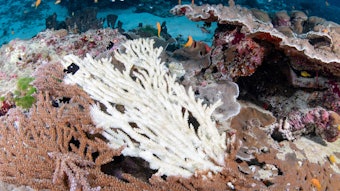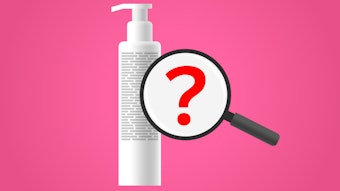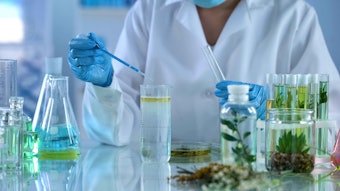
Editor's note: The "Words from Wiechers" article series considers the many lessons the industry can learn from the late Johann Wiechers, Ph.D. He was an advisor, colleague and insightful leader in the industry until his unexpected passing. Presenting Wiechers's insights is IFSCC Education Chair, Anthony J. O'Lenick, Jr.
This month, we review chapter 28, "High Resolution Resolutions," in Wiechers's Memories of a Cosmetically Disturbed Mind. In it, he presents a dilemma that is all to often encountered: making technical and marketing sense out of words we use to describe our products.
He uses the term natural but it might as well be sustainable, biodegradable or even GMO, as many of these terms lack a crystal clear definition but we use them nonetheless. I recently read an article that states, “Although silicones are not biodegradable, they are degradable either in soil for nonvolatiles such as polydimethylsiloxane, or in air for volatile species such as cyclopentasiloxane.” Having reread the line a number of times, I’m still confused.
Johann relates his experience from 2005 on the term natural as an example of this dilemma:
 “What I would like to do in this column is address a cosmetic dilemma I have seen in our industry where commercial desire and technical reality greatly deviate. Commercially I know that 'money makes this world go around,' but I also know technically that 'money does not make happiness.' Both sayings, however, are a fact of life.
“What I would like to do in this column is address a cosmetic dilemma I have seen in our industry where commercial desire and technical reality greatly deviate. Commercially I know that 'money makes this world go around,' but I also know technically that 'money does not make happiness.' Both sayings, however, are a fact of life."So, how far do we go in our attempts to create shareholders' value? Will we allow ourselves to deviate from our scientific principles or even our social norms and intrinsic values in order to make money? Let me give you a current cosmetic example.
"In cosmetic marketing terms, natural is big, cool and absolutely necessary nowadays. Special issues of cosmetic trade magazines have been dedicated to this theme and I have seen creative use of language, such as 'going nuts about naturals.' From a marketing point of view, everything natural is good, safe and healthy, albeit predominantly for the selling party’s bank account. Anything not natural is—unspoken implicit yet very understandably—bad.
"However, in a more technically oriented cosmetic publication you will luckily find that cosmetic scientists have not gone completely nuts on the natural subject, but despite their arguments they are not winning this battle. Let’s have a look at technical sales people of naturals who are caught in the middle.
"At a recent conference in South Africa, I listened to a speaker introducing a definition of naturals that originated from France. Although I did not manage to quickly write it down (and may therefore be misquoting this person on details), it was something like: 'A natural product is a product that consists of at least 90% (or 95%) natural ingredients.' Of course, you can argue whether this means 90% (or 95%) of the number of cosmetic ingredients should be natural or the combined weight of the natural ingredients in a final formulation should be at least 90% (or 95%) of a natural origin.
"For the latter interpretation isn’t it great that there is so much 'natural' water in our products? But there still is the issue of what is a natural origin. This definition therefore does not really help us a lot in the quest for truth in naturals. Cosmetic marketers seem to orient themselves much more on this origin of naturals and therefore have a completely different yet unspoken definition of naturals. According to them, anything created willingly by man (i.e., with human intervention such as chemical synthesis) is not natural, but anything made spontaneous by plants or animals is natural.
Clearly, the marketing definition for naturals is not helping us to create a story for them that works both in marketing and in technical terms.
"This definition implies that although we as humans are natural, everything we willingly create is unnatural and that means almost everything we do (apart from creating offspring in the natural way; rest-assured, I will resist the temptation to discuss IVF here as some of us might suddenly feel unnatural or artificial for no good reason at all!).
"Our marketing colleagues probably mean that anything created without human intervention is natural, so a plastic cannot be natural because many styrene molecules put together will never spontaneously form polystyrene. According to this definition, dinosaurs died a natural death because it was not one of us that threw the meteorites. The meteorites fell spontaneously from the sky, the dinosaurs fell dead (albeit forced) on the ground and were covered with rocks and fossilized on the spot.
"Despite the fact that we call this section of science Natural Sciences, fossilized materials such as petrochemicals are considered by the true natural ['zealots'] to be not natural. I don’t think either dinosaurs or complete forests opted to fossilize spontaneously but for mineral oil to be unnatural in this unwritten definition requires an intervention of one of us that forced pre-historical life to turn into petrochemicals.
"Clearly, this marketing definition is also not helping us to create a story for naturals that works both in marketing and in technical terms. After the abovementioned speaker in South Africa had sung his own praises about the excellent performance of his latest new ingredient—it was so good, simply because it was natural—I asked him to help me with a little hypothetical experiment. In one hand, I had a bottle with natural glycerin and in the other, a bottle with synthetic glycerin. But unfortunately, I had forgotten which one was in which hand, so which experiment would he recommend for me to find out? The speaker remained terribly quiet, whilst the audience was audibly enjoying themselves. But the answer that finally came was shocking, at least to me.
"'Technically, he said, there may not be a difference but isn’t it in our cosmetic industry that we merely sell hope in a bottle, so we just give our customer what they want, even if we know it to be complete rubbish?' Not only did he disgrace his own presentation but such a response is in my belief damaging to our whole industry. We should have the guts to not give our customers what they want if we know what they ask for is technically complete nonsense and the perceived benefits are misleading. In the long run, giving in to such temptation always backfires on our whole industry, and therefore on all of us. For me, this is an example of selling your scientific principles for a quick buck.
"Until the time that a better definition for natural is found, I would like you to offer my personal (definitely temporary) one: 'Every molecule comes from a plant, either a botanical plant or a chemical plant. Everything is therefore natural. Human beings and other animals are also nothing else but chemical plants.'"
As we use terms that have scientific meaning, marketing meaning and common meaning, we will always be confused as to which meaning is in use. I am reminded of an expression that has a different meaning in American English than it does in British English. One means drunk and the other, very angry. Perhaps we should do what my British associate does. He always uses the word but then specifies “in a British sense,” to clarify.
Words can be very exact and transparent, or vague and confusing. We need to clarify what we mean in our industry.










